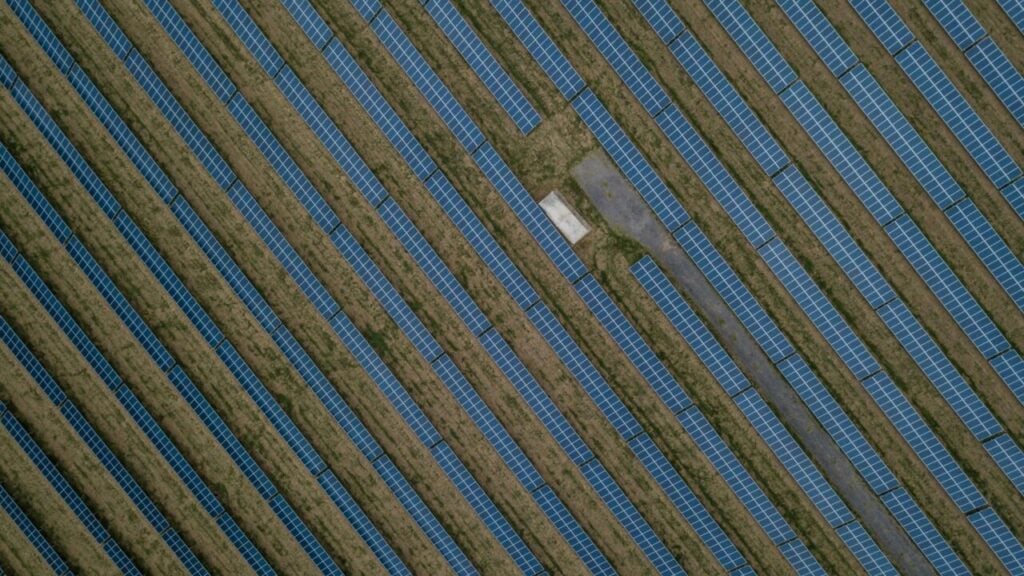
March and April saw a “significant rise” in thefts and crime at UK solar projects, with 11 reported incidents compared with just three reported in February.
The 11 incidents took place across seven locations in Dorset, Sussex, Essex, Derbyshire, Lancashire, Worcestershire and Staffordshire, according to intelligence and security firm DeterTech. They comprised six thefts, two instances of hostile reconnaissance, two reported suspicious vehicles and one confirmed intrusion, crime analysts at DeterTech said.
The analysts noted that one site in particular fell victim to three separate break-ins within a month, resulting in the theft of string cable valued at around £90,000.
Kelly Barnes, senior crime analyst at DeterTech said the UK is “very clearly now entering a peak period [of solar crime] when additional safeguards are advisable.”
“Many solar farms have external tracks running near the fence lines that can be accessed via farm gates owned by the farmers who leased the land for the solar installation. These should also be checked as the removal of padlocks and chains is often a sign that a site is receiving unwanted criminal attention,” Barnes warned.
Stringing along
DeterTech said that the crimes are organised in nature, warning of “organised gangs increasing sophistication in casing out prospective sites and diverting on-site security personnel.”
An example case in Derbyshire, where criminals “lured” mobile security patrols to a decoy location “as part of a deliberate and co-ordinated distraction operation”, resulting in the theft of a “significant volume” of string cable from the project.
In comments to Solar Power Portal, DeterTech intelligence analyst, Richard Crisp, said that string cable theft is the most common at solar sites.
“Thieves will systematically pull out all the strings across a row, immediately impacting the site’s ability to generate electricity,” Crisp said. “All sites are configured differently, but it’s not uncommon to have over 100 panels in a row. That means thieves can very quickly get their hands on a whole kilometre’s worth of cable.”
Affected plants lose money due to lost power generation, and Crisp said “most have some sort of standard agreement on electricity produced, meaning they also risk fines from regulators.”
While it is “unlikely” that theft from a solar project could result in a local blackout or power shortage, he said, “since solar is the cheapest source of electricity, we all have to pay more through higher bills when solar production is disrupted.”
Fully industrialised, international
“Last year, enough cable was stolen in the UK alone to stretch all the way from Land’s End to John O’Groats and back,” Crisp told Solar Power Portal.
The cable is either shipped abroad whole or stripped and sold to scrap metal dealers.
Crisp said police have “a limited intel picture on where the cable goes”, but the “sheer volume of theft” shows that “fully industrialised international disposal routes have emerged across Europe to facilitate the sale of stolen cable.”
Thefts of solar modules from large-scale solar projects have decreased since a peak in 2022, Crisp said, largely through the “arrest and disruption” of a specific criminal gang which “targeted solar farms for panels at scale” and the wider use of products like SmartWater, a forensic security technology.
Panels which are still stolen “are much more commonly stolen from other more public places such as the roofing of industrial estates and public buildings,” he said.
The “first thing” developers should to do protect against crime is to “restrict access to fencing from surrounding fields,” Crisp said. “Retaining vegetation around a site’s perimeter is also useful.”
He also advised CCTV monitoring, forensic marking and regular perimeter checks.
“In advance of a larger theft, most OCGs [organised criminal gangs] will first test a site’s security response by, for example, cutting a hole in a fence or knocking down a CCTV camera. And once a site is targeted, the data shows it has a high likelihood of repeat victimisation.”
DeterTech spoke to PV Tech Premium, in two interviews over the last two years about the trends and solutions in PV project crime.

